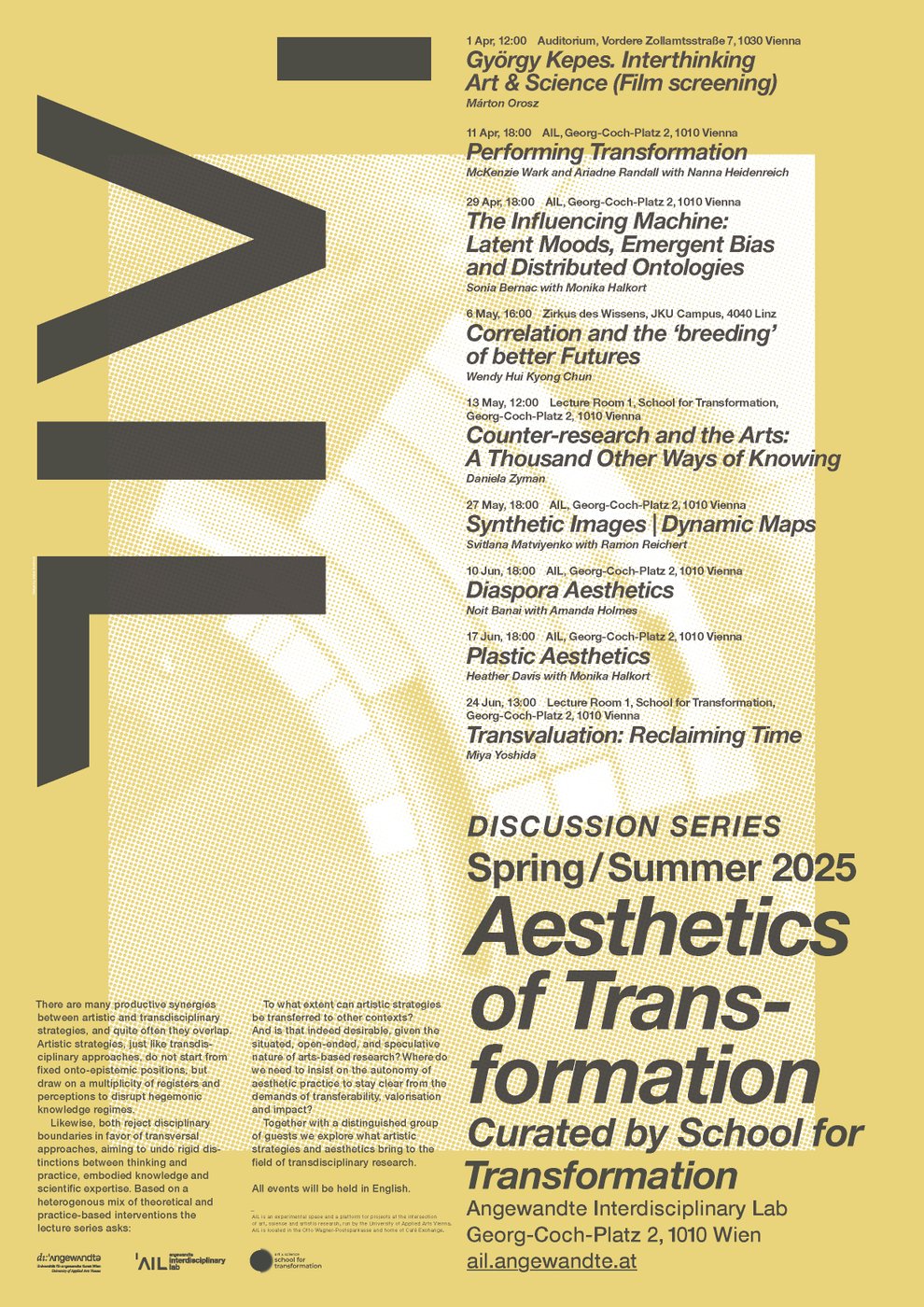The Paradoxes of Positionality: Diaspora Aesthetics and Transdisciplinary Research
Since the 1980s, ‘positionality’ has become a critical methodology through which to deconstruct (western European) universal epistemologies and make visible ‘situated knowledges’ that have been rendered illegitimate, marginalized, repressed, or altogether silenced; at the same time, in more recent years, ‘positionality’ has become an opening towards increasingly rigid and reified models of particularized identity that have narrowed the bandwidth of the social imaginary by creating new orthodoxies, prohibitions, and techniques of disciplining. Starting from the premise that both diaspora aesthetics and transdisciplinary research materialize from the current paradoxes of positionality, I explore the potentials and limits of bringing these two fields into conversation within academic-aesthetic contexts and the mandates of the nation-state.
Noit Banai (Columbia University, PhD) is Professor of Diaspora Aesthetics at the Institute for Art Theory and Cultural Studies, Academy of Fine Arts, Vienna. An historian and critic, she specializes in modern and contemporary art with a focus on conditions of migration, exile, diaspora, border-regimes and statelessness in a transcultural and trans-disciplinary perspective. Her current book project is titled Stateless: Artistic Practices by Refugees in Shanghai, Hong Kong, Singapore, 1933-1953. She is also the author of Yves Klein (Reaktion Books, 2014), Being a Border (Paper Visual Arts, 2021) and many articles appearing in international journals.
Amanda Holmes is a university assistant in the Philosophy Department at the University of Applied Arts, Vienna. Her research is situated at the intersection of theoretical psychoanalysis and 20th century continental philosophy. She is currently completing her first book manuscript, which is under contract with SUNY Press and is tentatively titled “No Real Word for It: The Invention Lacan’s objet a.”
